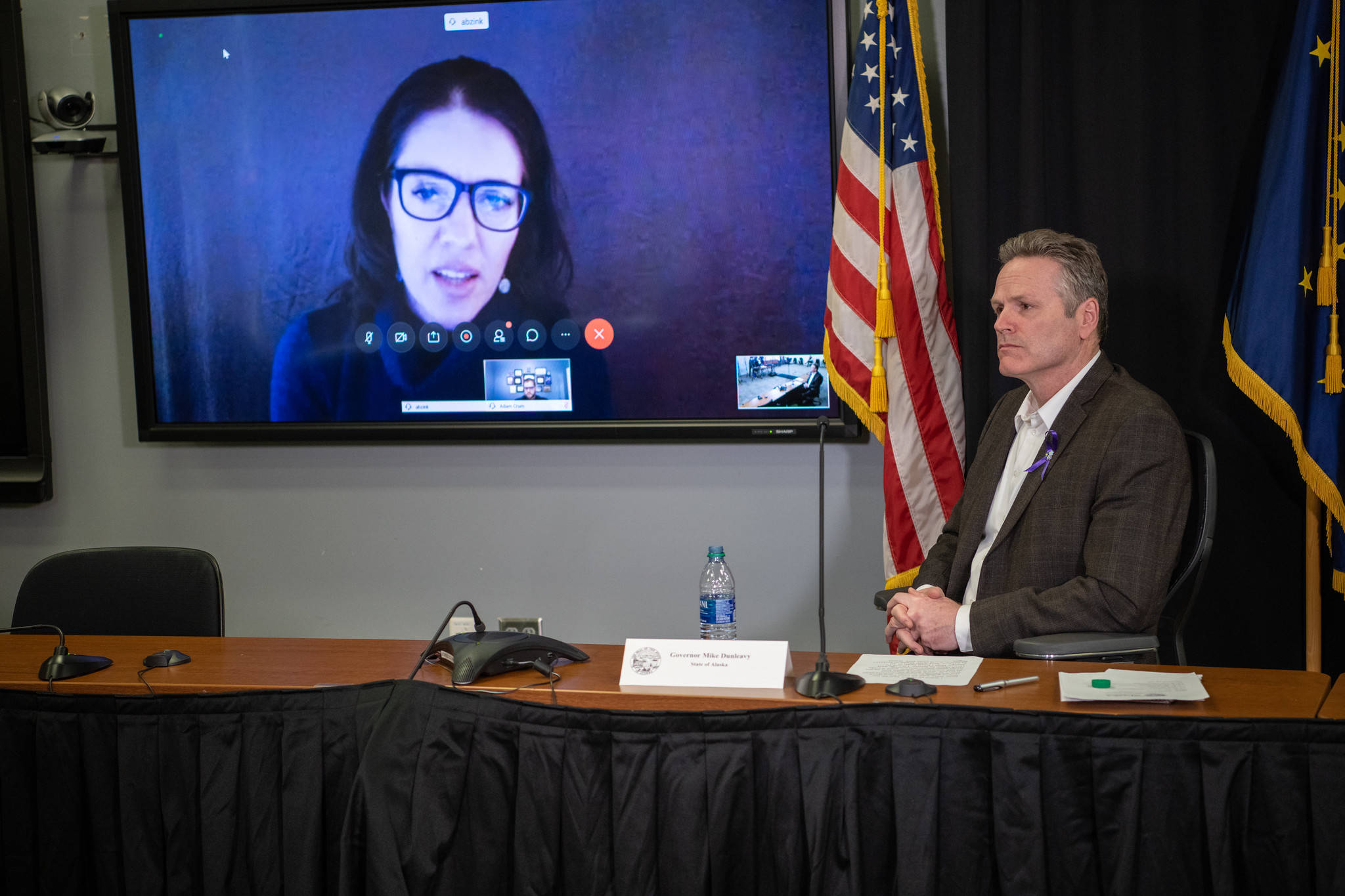Alaska is set to get its share of the $2 trillion stimulus package recently approved by Congress, the state’s congressional delegation said during a teleconference Monday evening.
“All elected officials are working very closely on this unprecedented crisis,” said Sen. Dan Sullivan, R-Alaska, speaking from Washington, D.C. The delegation discussed the provisions of the Coronavirus Aid, Relief and Economic Security Act, (CARES) that will inject vast amounts of funds into America’s economy.
The bill will provide roughly $1.2 billion to states for “coronavirus-related matters,” said Sen. Lisa Murkowski, R-Alaska. Those funds could be used for things as diverse as additional funding for municipalities who are lacking revenue because of a diminished tourism industry or a school district purchasing laptops to enable students to learn remotely.
Funds can be made available “as long it is tied back to the coronavirus,” Murkowski said.
Checks would be sent out to individuals, Murkowski said, but when that will happen is an open question. Congress had initially wanted checks to go out as soon as April 6 but were told by the U.S. Treasury Department that date was not feasible. Those who file or filed their 2019 taxes electronically were likely to receive their payments sooner than paper filers, Murkowski said.
“The heart and soul of this legislation is the $350 billion guaranteed loans through local banks and credit unions,” Sullivan said. The intent was to have small businesses maintain payroll, pay rent on buildings they occupy and continue to pay benefits to employees. The legislation defined small business broadly, Sullivan said, to help expand the reach of the funds.
While the CARES Act was the largest stimulus package in the history of the United States, it may still be necessary for Congress to provide additional payments, Sullivan said.
“We’re going to analyze the impacts of this bill,” Sullivan said. “Implementation is going to be really important, and then we’ll look at if we need more funding.”
The number of COVID-19 cases in the state had risen to 119 as of Monday evening, Gov. Mike Dunleavy said. The City and Borough of Juneau announced the capital city’s fifth case was confirmed Sunday evening. Seven people who tested positive for COVID-19 were hospitalized, Dunleavy said.
Even with massive stimulus packages, Congress and the Legislature may need to appropriate even more funds to help people weather the economic fallout caused by the crisis.
“There is much in this CARES act that is designed for individual benefits,” Murkowski said. “My sense is that people have been impacted so quickly, so dramatically, when we say prepare and save, none of us could have anticipated we would be here talking about a global pandemic.”
• Contact reporter Peter Segall at psegall@juneauempire.com. Follow him on Twitter at @SegallJnoEmpire.
Information on the coronavirus is available from websites for the City and Borough of Juneau, the State of Alaska at coronavirus.alaska.gov and the Centers for Disease Control and Prevention. People with flu-like symptoms are encouraged to contact their health care provider.

